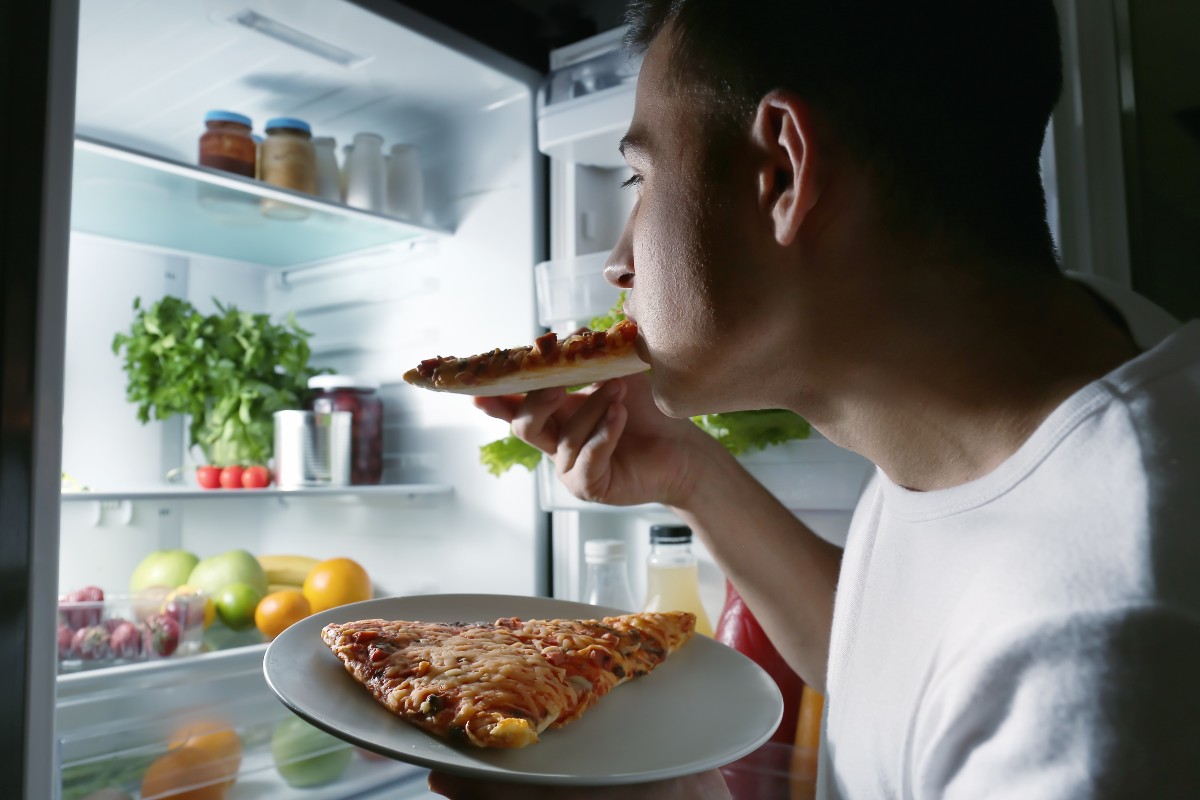
When to Stop Eating Before Bed
We’ve all been there — flopped on the sofa, watching something mindless, when suddenly hunger strikes. A little snack before bed won’t hurt, right? Well… maybe. Turns out, when (and what) you eat before bed can have a big impact on your sleep. So, if you’ve ever wondered whether that late-night biscuit binge is messing with your rest, here’s the lowdown.
How late is too late?
The general consensus seems to be to stop eating about two to three hours before bed. This allows enough time for your body to digest your food before you lie down. Essentially, this will reduce the likelihood of heartburn, acid reflux, or just feeling like a bloated mess when you’re trying to drift off.
Of course, life doesn’t always work that neatly. Late dinners, after-work drinks, or just a sudden craving for toast at 10:30 PM happen. If you do need a snack before bed, keep it light—think a banana, some yoghurt, or a handful of nuts rather than a full-blown cheese toastie.
Why does it matter?
Eating too close to bedtime can cause havoc with your sleep in a number of different ways. These include:
-
Acid reflux and heartburn – Lying down with a full stomach can send stomach acid back up where it doesn’t belong (1). Not exactly the recipe for a restful night.
-
Messed-up metabolism – Your body likes a routine. If you're constantly eating late, your internal clock can get thrown off, which might not be great for weight management either (2).
-
Weird dreams – Ever noticed that eating heavy, rich food late at night leads to some seriously bizarre dreams? Science backs this up—your metabolism and brain activity are connected (3).
But what if you’re actually hungry?
Going to bed feeling hungry isn’t great either—you might wake up in the middle of the night craving food. If you genuinely need to eat something, go for a small, protein-rich snack rather than a sugar hit that’ll spike your blood sugar and leave you wide awake. To get you thinking along the right track, here are a few good options:
-
A bit of peanut butter on toast
-
A handful of almonds
-
A small bowl of cereal (not the sugary kind, though)
Eating before bed FAQs
What foods should I avoid before bed?
Try to steer clear of greasy, spicy, or sugary foods before bed. Caffeine and alcohol are also sleep disruptors, so maybe swap that late-night coffee for a herbal tea.
Can eating before bed make me gain weight?
It’s not so much the timing but the total calories that matter. That said, late-night snacking (especially on junk food) can make it easier to overeat, which isn’t ideal if you’re watching your weight.
Does eating late cause nightmares?
Not directly. But eating heavy meals before bed can lead to more brain activity, which might mean vivid or unusual dreams.
Is it bad to go to bed hungry?
A little hunger is fine, but if your stomach is growling so much it’s keeping you awake, a light snack (like a banana or some yoghurt) can help. Just don’t turn it into a full meal or your digestive system might just keep you awake as much as the hunger would.
What if my schedule means I have to eat late?
If you have no choice but to eat late (night shifts, late work hours, etc.), try to go for lighter, easy-to-digest meals. Options like soups, lean proteins, and whole grains are best. And remember to give yourself at least 30–60 minutes between finishing your meal and lying down in bed.
Eating before bed: the bottom line
If you want the best sleep possible, try to stop eating at least two hours before bed and avoid heavy, greasy, or sugary foods. But don’t stress out about it too much—a sensible late-night snack now and then won’t ruin your sleep completely. Just maybe save the massive midnight pizza feast for special occasions.
Now, off to bed—with or without that snack.
Sources:

Gemma Henry - Content Lead
Gemma finds sleep fascinating and describes the discovery aspect of her role as eye-opening. Her keen eye for detail and dedication to thorough research ensures that Bensons customers get the informative sleep-based advice they're looking for.